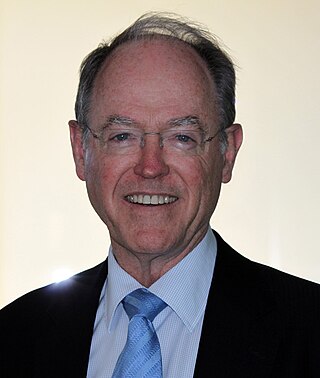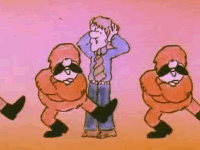The New Zealand Labour Party, also known simply as Labour, is a centre-left political party in New Zealand. The party's platform programme describes its founding principle as democratic socialism, while observers describe Labour as social democratic and pragmatic in practice. The party participates in the international Progressive Alliance. It is one of two major political parties in New Zealand, alongside its traditional rival, the National Party.
The Green Party of Aotearoa New Zealand, commonly known as Green or the Greens, is a green political party in New Zealand. Like many green parties around the world, it has four pillars. The party's ideology combines environmentalism with social democratic economic policies, including well-funded and locally controlled public services within the confines of a steady-state economy. Internationally, it is affiliated with the Global Greens.
New Zealand First, commonly abbreviated to NZ First or NZF, is a political party in New Zealand, founded and led by Winston Peters, who has served three times as deputy prime minister. The party has formed coalition governments with both major political parties in New Zealand: with the New Zealand National Party from 1996 to 1998 and 2023 to present, and with the New Zealand Labour Party from 2005 to 2008 and 2017 to 2020. New Zealand First currently serves in a coalition government with both National and ACT New Zealand as part of the Sixth National government, having won 6.08% of the total party vote in the 2023 New Zealand general election.

Electoral reform in New Zealand has been a political issue in the past as major changes have been made to both parliamentary and local government electoral systems.

Donald Thomas Brash is a former New Zealand politician who was Leader of the Opposition and leader of the New Zealand National Party from October 2003 to November 2006, and leader of the ACT New Zealand party for seven months from April to November 2011.
United Future New Zealand, usually known as United Future, was a centrist political party in New Zealand. The party was in government between 2005 and 2017, first alongside Labour (2005–2008) and then supporting National (2008–2017).

Kiwibank Limited is a New Zealand state-owned bank and financial services provider. As of 2023, Kiwibank is the fifth-largest bank in New Zealand by assets, and the largest New Zealand-owned bank, with a market share of approximately 9%. In December 2023, the bank's assets totaled about $35 billion.

Rodney David Donald was a New Zealand politician who co-led the Green Party of Aotearoa New Zealand, along with Jeanette Fitzsimons.

Gordon Frank Copeland was a New Zealand politician who served as a Member of Parliament from 2002 to 2008. He entered the House of Representatives as a list MP for the United Future New Zealand Party from 2002 but he resigned from the party in 2007. In March 2009, Copeland became Party President of The Kiwi Party, which he had co-founded with another former United Future list MP, Larry Baldock, in May 2007. Copeland stood for the Conservative Party in the 2011 New Zealand general election. Prior to entering Parliament he held a number of corporate positions before working as the financial administrator for the Roman Catholic Archdiocese of Wellington.
Graeme Richard Hart is a New Zealand billionaire businessman and the country's richest person. He prefers to stay out of the media and makes few public appearances. As of March 2022, his net worth was estimated at US$9.7 billion.

NZ On Air, formally the Broadcasting Commission, is an autonomous Crown entity and commission of the New Zealand Government responsible for funding support for broadcasting and creative works. The commission operates largely separate from government policy but must follow directions from the Minister of Broadcasting. NZOA is responsible for the funding of public broadcasting content across television, radio and other media platforms. It is also a major investor in New Zealand independent producers.

KMD Brands, formerly Kathmandu Holdings, is a global outdoor, lifestyle and sports company consisting of three brands: Kathmandu, Rip Curl and Oboz. Kathmandu was founded in 1987 in New Zealand and specialises in clothing and equipment for travel and the outdoors. Oboz, part of the group since 2018, is based in North America and designs wilderness footwear. Rip Curl, acquired in 2019, is a global surf brand founded in Bells Beach, Australia in 1969.

The Fifth Labour Government of New Zealand was the government of New Zealand from 10 December 1999 to 19 November 2008. Labour Party leader Helen Clark negotiated a coalition with Jim Anderton, leader of the Alliance Party. While undertaking a number of substantial reforms, it was not particularly radical compared to previous Labour governments.

Gareth Huw Morgan is a New Zealand businessman, economist, investment manager, philanthropist, public commentator and former political figure.

The "Dancing Cossacks" was a 1975 electoral television advertisement for the New Zealand National Party, produced by advertising agency Colenso. The first half of the advertisement was animated by Hanna-Barbera, with the second half featuring National Party leader Robert Muldoon. The advert was produced to be highly critical of the governing New Zealand Labour Party's recently introduced compulsory superannuation scheme, implying the scheme would eventually turn New Zealand into a Soviet-style communist state, and urged people to vote for National in the upcoming general election.

Robert Barry Hobson Coates is a New Zealand politician who was a member of the New Zealand House of Representatives as a representative of the Green Party of Aotearoa New Zealand. Since 2019 he has been chief executive of the ethical investment charity Mindful Money.

Great Journeys New Zealand is the tourism division of KiwiRail that operate its three Scenic train services. The new division was launched in May 2017 and replaced the former tourism brand KiwiRail Scenic Journeys. It has continuity with the earlier InterCity Rail (1987–1995) and Tranz Scenic (1995–2011).

The Sixth Labour Government governed New Zealand from 26 October 2017 to 27 November 2023. It was headed first by Jacinda Ardern and later by Chris Hipkins, as Labour Party leader and prime minister.
KiwiBuild is a real estate development scheme pursued by the Sixth Labour Government of New Zealand. It began in 2018, with the aim of building 100,000 homes by 2028 to increase housing affordability in New Zealand. It comes under the oversight of the Ministry of Housing and Urban Development and the Minister responsible is the Minister of Housing, Megan Woods.

The 2023 New Zealand general election was held on 14 October 2023 to determine the composition of the 54th Parliament of New Zealand. Voters elected 122 members to the unicameral New Zealand House of Representatives under the mixed-member proportional (MMP) voting system, with 71 members elected from single-member electorates and the remaining members elected from closed party lists. Of the 72 electorates, only 71 seats were filled, with the remaining electorate MP determined in the 2023 Port Waikato by-election, due to the death of one of the general election candidates. Two overhang seats were added due to Te Pāti Māori winning six electorate seats when the party vote only entitled them to four seats, with an additional overhang seat added after the by-election making for 123 members of parliament.













